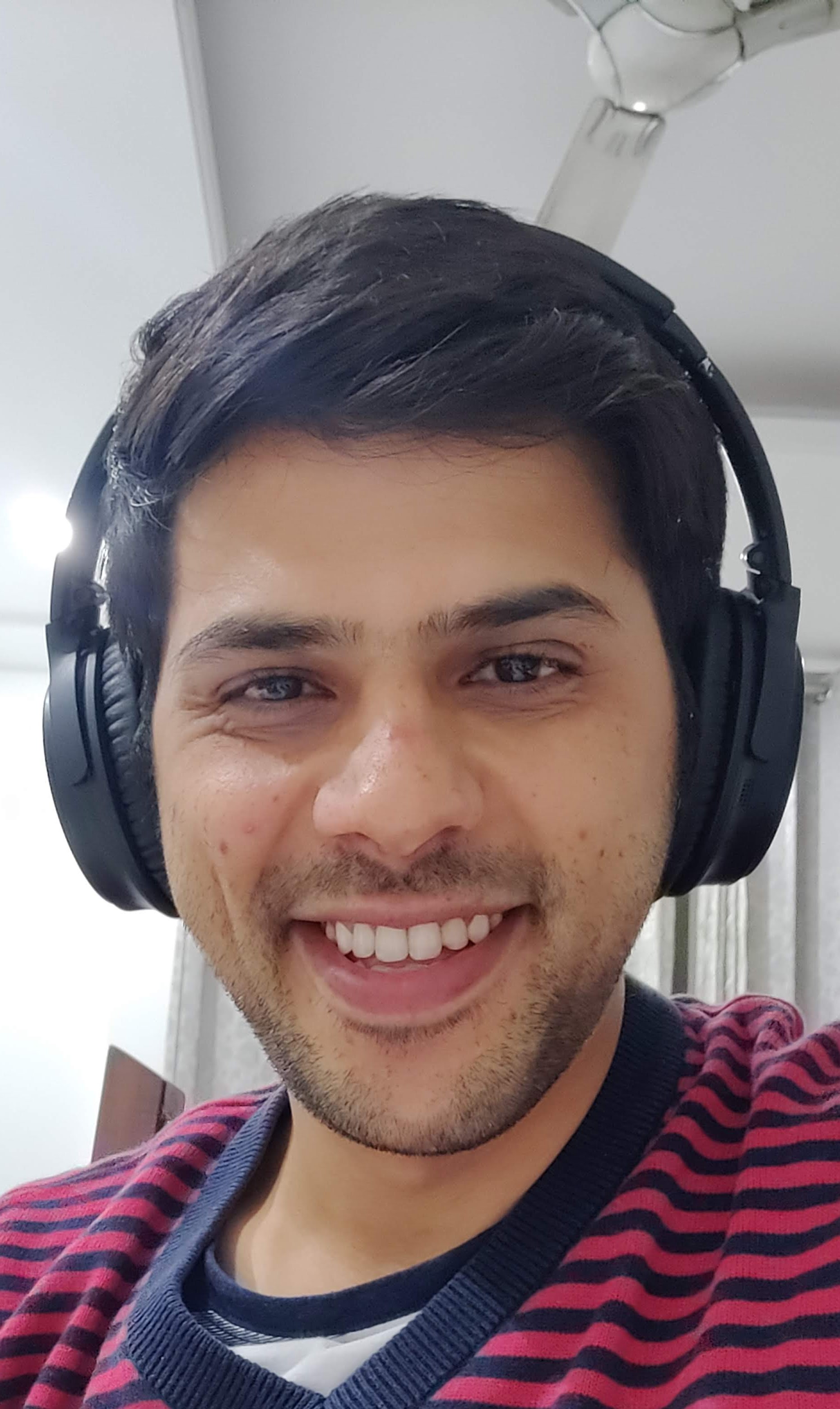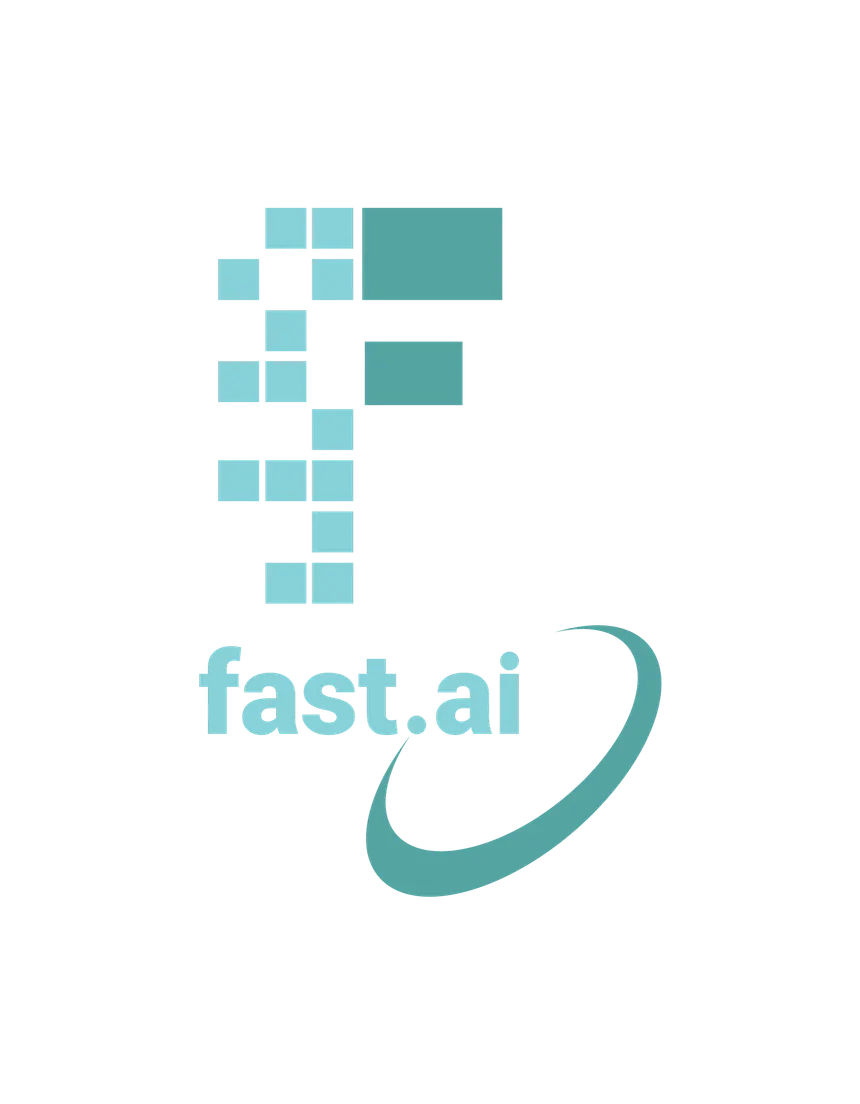One of the advantages of the SolveIt approach is it provides a hedge against AI tools that totally replace the human creator. The SolveIt approach comes out of a philosophy of AI that fits with a deep commitment to craft and attention to detail, and this is more amenable to creative writers and English professors.
My learning ability went up drastically. I can get dig deeper into exploring a concept in any subject. It was like having an office hour with a professor that was very smart and patient without any appointment.
I think I got into some better habits around approaching programming, and then other problems, by taking more time to plan before jumping in, and then building incrementally.
I was very impressed with the solveit tool and also the inherent process of using AI to solve problems. I have beginners and expert developers in my org., and many still struggle to use AI effectively in their software engineering process. This course and your approach of how to educate was very helpful for me.
Many people know about the Coursera course "Learning How To Learn." This was close to a "Learning How To Learn using Code and LLMs"
Where SolveIt makes all the difference is that it doesn't just help you reach your initial goal, but it helps you better understand the problem you are tackling and makes solving it more enjoyable. As a result, it gives you more confidence to aim higher and take on more challenging problems.
One thing I realized while following the course is that I do have problem-solving skills—in fact, we all have a problem-solving mindset. If we are provided with the right set of tools, we can do pretty well. This course has turned out to be that source of tools for me.
I had incredible success using the SolveIt methodology in SDE & MLE interviews. I received a job offer and feedback from every interview was: 'They really liked how you solved the problem. They said you methodically tested code along the way and collaborated nicely with the interviewer'.
Having AI by my side and a clear framework for solving problems has drastically lowered the activation energy required to start a project. My mindset has shifted from 'This is going to be a lot of work, but you can do it' to 'This is going to be fairly easy and enjoyable.'
Regularly working AOC problems and exposure to Polya's method has changed the way I approach problems and increased my willingness to approach new seemingly difficult tasks.
✨
Are you ready?
Become part of our growing community.
Sign Up
I've been experimenting with applying the principles of small, testable steps in other areas. Currently I'm developing "playbooks" for my chess coaching business (onboarding a new client, annotating puzzles, etc.) by creating a minimal viable version and then trying to improve it slightly each time I go through the process.
Using solveit I can generally get things to work, while in the past, struggling with new tasks/concepts/code often led to despair/hopelessness and if I got it to work it seemed like a miracle.
I feel more comfortable using AI for software development, research/learn, and also blog posting
I learned both the underlying conceptual ideas of FEA and fluid dynamics using the Solveit approach. I learned faster and enjoyed it more than I would have without solveit.
I would never have thought of trying out web dev myself before seeing the lessons with SolveIt and fastHTML.
I enjoyed the flexibility to experiment and freely try anything while having the initial structure of doing the Advent of Code problems to get acquainted with the platform and get back up to speed on any rusty coding knowledge. This platform is my preferred way of coding and learning code related information.
I am now more comfortable working with graph problems or doing competitive coding
Starting off by stating a plan and having SolveIt review/help revise it was truly beneficial. Asking along the way 'OK, what is next?' helped keep me focused on the next action needed, too. It reduced the stress of coming back to a problem later too.
I am someone who tries to learn coding and ML since 2015 and always gave up coding after a month or two, but this time I truly believe I will keep coding everyday.
Using SolveIt really feels like the first platform taking advantage of flexibility and convenience in coding powered by AI. Most other platforms or techniques involve a 'beat around the bush' until it looks decent approach.
✨
Are you ready?
Become part of our growing community.
Sign Up
Devising a plan (with the help of the AI!) keeps the momentum going much more effortlessly, even if I have to update the plan midway.
Solveit is great - single interface, 3 modes, it's all there for the LLM to see - very cool, and well done.
Happy to say I came joint 4th out of 700 people who signed up for the hackathon (although only 80 or so submitted responses). Without having done AOC2024 using SolveIt and guidance from course members on Discord, I would not have had the confidence to tackle the hackathon.
I realized that this iterative process and the short feedback loop are actually essential for me to build anything more complex.
Overall to me the biggest updates to my problem solving skills were just putting together pieces that I mostly already knew about individually but hadn't put together yet for a problem solving pattern like curating context, putting a plan at the beginning, modifying LLM output to act as examples.
This course/SolveIt itself has increased my drive to break things down to smaller steps with checks at each step. I'm slowly internalizing the Polya approach and questions.
Starting off by stating a plan and having SolveIt review/help revise it was truly beneficial. Asking along the way 'OK, what is next?' helped keep me focused on the next action needed, too. It reduced the stress of coming back to a problem later too.
Dialog engineering is definitely something unique and I learnt a lot about that.
I was already a very experienced software developer and used AI heavily and daily. However, the solveit approach greatly enhanced my understanding and know-how.
Setting aside the AI aspect, I was surprised to have my general problem solving improve dramatically. The approach works amazing in coding interviews, which is a time pressure setting I wouldn't have felt comfortable testing a 'slower' feeling approach had I not been in this course.
✨
Are you ready?
Become part of our growing community.
Sign Up
SolveIt gave me the confidence to tackle the problem myself instead of just blindly trusting the LLM.
I am surprised from boosted productivity and learning ability. But most importantly, I am surprised at myself. I didn't expect to learn so many new libraries and skills in such a short time.
The SolveIt course has helped me rethink how I approach large problems. The SolveIt app has made it possible to break very complex problems down in a way that they can be solved piece by piece. How can you eat an elephant? One bite at a time!
My biggest "aha" was incremental solving and using AI-based assistants as chisels and not relying on them as sledgehammers to output large blocks of code.
Devising a plan (with the help of the AI!) keeps the momentum going much more effortlessly.
I had barely used AI for programming at all before starting the course, so that's been completely new for me, and has made my coding process much more efficient.
You avoiding wasting time wrestling with abstract issues or fighting the LLM to give you quality output. The whole process empowers you to learn and build products at a pace far faster than you'd expect.
I'm absolutely more aware of when I'm not working on a broken down part of the problem.
I found it especially good with helping me write and improve blog posts, as I could discuss my content back and forth and iteratively improve each section, and easily apply changes in direction to previous sections.
Prior to joining the course I was having difficulties figuring out how to best take advantage of LLMs for my work as a developer... The course delivered on providing said guidance and then some.
✨
Are you ready?
Become part of our growing community.
Sign Up
I see the SolveIt way everywhere now! I am growing in confidence with it and getting better at implementing the discipline.
Two big surprises: awesome participation of Eric Ries - additional benefit I was not expecting: front-end and FastHTML
I found that a lot of the problems I was tackling at work, could be broken down, explored and prototyped with the SolveIt method, before later translating it into a production and company-style-guide adherent program.
SolveIt is a really positive use of AI, its augmenting your skills rather than trying to replace them.
Going from no project to learning to building multiple projects I wanted was very crazy. It's just that easy to build things.
I simultaneously was trying it with claude ai and claude ai was close but I felt the quality of the code suggestions by solve it were better.
I have a much better understanding of the capabilities available when using LLM's for development and what is generally possible. Its always interesting listening to Jeremy since one learns a huge amount regarding where the technology is and how it can be applied.
The SolveIt platform makes it much faster to go through development, debugging and testing.
Now I am using it to solve more problems because I understand the value of providing contexts better, even outside of SolveIt in Claude or Copilot.
Overall I really like using the SolveIt app and find it extremely productive and has allowed me to tackle the various problems in the course in a way that surprised me.
✨
Are you ready?
Become part of our growing community.
Sign Up
How to best leverage AI tool. For instance being able to edit/delete AI answers and to drive the AI in controlling the context is super powerfull
I feel much more comfortable using AI to hit the ground running with new projects and libraries. Now my problem solving approach is much more balanced. When I'm blocked, I am quicker to take a step back and make the LLM guide me step-by-step instead of getting into the rabbit hole of useless prompts.
I used solveit to create small frameworks to help in my work like a barebones agent framework that works at without all the heavy overhead of langchain etc and I really liked the solveit method of doing it.
To me I feel this should be also extended to educational institutions even to schools where this should be introduced as part of their curriculum.
I recommend the course to anyone seeking to learn how to combine Large Language Models with a general problem-solving framework to approach and work through nearly any task. Bonuses include lessons about software development and startups and access to the SolveIt community.
I was already a very experienced software developer and used AI heavily and daily. However, the solveIT approach greatly enhanced my understanding and know-how.
Now I begin with SolveIt every time and only move to other environments when necessary.
Before the course, I've never thought about working on a project because I thought it would take so much effort. However, after many (unsuccessful) projects, I am confident that I can work on any project.
Initially, the challenge was slowing down, but once I realized it actually made me faster, it became much easier.
As soon as the penny dropped that I should be working through problems step by step it has transformed my relationship with language models. Now if I have a programming problem I will always say 'don't just give me the answer, walk me through the solution step by step'.
✨
Are you ready?
Become part of our growing community.
Sign Up
The AI features (ghost text, super completion, Claude, etc.) make it super seamless to use AI as a partner.
Understanding Pólya's philosophy, particularly the concept of breaking problems into smaller, manageable steps, was a game-changer in my approach to problem-solving and coding. Rather than feeling overwhelmed by complex challenges, I learned to start with small, achievable pieces and build confidence with each solved component.
I was already a very experienced software developer and used AI heavily and daily. However, the solveIT approach greatly enhanced my understanding and know-how.
I used solveit to help me rewrite my dockerfile for one of my environments. This was a really nice use-case that LLMs are pretty good at.
The most important thing this course teaches is how best to do problem solving with AI and provides a platform/interface to implement these best practices.
I've used it for everything from web scraping to creative writing - I even wrote a birthday poem for a friend using the interactive questioning approach to gather and refine my thoughts. What's remarkable is how the method adapts to different contexts while maintaining its effectiveness.
This new way of working can unlock human curiosity and creativity something that we need for the years to come.
Something about the simplicity of the UI paired with the SolveIt method affords a better understanding as you step through the problem. You stay in flow prompting SolveIt-unlike Cursor or VSCode where the chat is off to the side.
The lessons and content gave me the 'activation energy' to start learning more about this and working on some personal projects/applications.
I think I feel more capable overall. I would often say, oh it would be nice to have that, but I can't do it. So I didn't do it. Now it's the other way round, I generally think, yes, I could do this, it might be difficult/complex, but I know how to approach it.
✨
Are you ready?
Become part of our growing community.
Sign Up
The SolveIt course was an absolute blast! It covered everything from tackling complex problems and effectively interacting with AI to using Python for problem-solving and even a quick crash course on web basics if you're short on time. But beyond all that, it was a massive motivational boost—encouraging you to believe in yourself, explore, experiment, and create amazing things. Truly an awesome experience!
Describing it as just an AI infused literate programming IDE is selling it short, it is, like its name suggests, a great way to Solve It (general problems) with code and AI. Using AI as a tutor, coach, pair programmer and SME is quite underrated.
The solvit approach is simple yet effective that is what makes it amazing. Solveit helps you stay in state of flow while learning!
The walkthroughs on using FastHTML&MonsterUI for web development added a new area to leverage my experience with Python. I plan to use this combination for demos in the future.
I feel much more comfortable using AI to hit the ground running with new projects and libraries. I considered myself quite good at that, and good at leveraging AI, but it happened often that at some point I was pretty blocked, despaired, and had to backtrack to relearn from basic concepts. Now my problem solving approach is much more balanced.
I often look forward to jumping into a quick SolveIt session to learn about something new or brush up on a topic. It doesn't feel like a chore and is fun. I really like this aspect of it.
I feel that the trick of sending the relevant documentation to the context is making learning and using anything new much easier.
After struggling with Flask, Django, and React setups, using Fasthtml/Fast.ai has been a breath of fresh air. The simple setup lets me focus on actually solving problems instead of getting lost in configuration - the simplicity frees my mind to focus on coding and problem solving.
Learning about and using nbdev has been a huge game changer for me. Normally the documentation part either doesn't get done at all or takes a lot of time. But now the documentation is a by-product of the actual fun work. I love it.
I moved now into a nbdev-based flow at work as often as possible. It made me cringe whenever I have to run big frameworks like Django where I can't immediately execute and see the results of each statement in the code.
✨
Are you ready?
Become part of our growing community.
Sign Up
SolveIt gave me the confidence to tackle tougher problems in Python without just handing over complete control to the LLM.
As a newbie the Solve-it approach helped me quickly make progress on being able to tackle problems programmatically. There is a huge amount of rich detail in the video lectures and encouraged me to be curious and rigorous in my approach to programming.
Using Solveit for AOC and a hackathon has increased my confidence. I feel I will use Solveit to write better code for work.
You can start building things you couldn't before and if you suppress the urge to move faster than you can, you will also understand what you build. So you can use it without the nagging feeling you're not actually completely sure that what's happening under the hood, isn't completely correct or might break any moment.
I had to reset and learn to feel comfortable with the fact that I can program and solve really complex problems on my own. It was like stretching the boundaries of my capabilities.
I've been able to learn Golang by myself. I've been able to pick up Kubernetes by myself... solveit somehow made me appreciate and anthropomorphize AI chatbots and it's somehow refreshing.
This course has encouraged me to explore more. I definitely feel more encouraged to tinker more. I am halfway to programmatically looking for my closest available tennis court at a time that is convenient for me. New Year's resolutions, here I come!
The discord platform is a friendly and super useful resource to keep learning. It has been a pleasure to be part of this wonderful community.
To me SolveIt feels like more than the sum of its parts. Sure, I can open up any LLM and try to use it in the same way but SolveIt seems to hit just the right spot.
I'm adding a feature to my heroicons library using solveit and I underestimated how helpful the AI is. It is really helpful and it enables a much better workflow than using only autocomplete or a LLM in a separate window!
✨
Are you ready?
Become part of our growing community.
Sign Up
Making sure of each step might feel slow at the time, but it speeds up the path to a final solution greatly.
Yes, this is the current best tool/platform that I am aware of, and I greatly enjoy the flexibility that is built in by default to the SolveIt notebook style approach.
Solveit is to me what Data is to Jean-Luc Picard or Solveit is to me what Spock is to Kirk. what I'm trying to say is that Solveit can be or become and extension of human knowledge. It's a sort of digital twins of our knowledge, experience that can expand human capability
SolveIt has been an extremely valuable course—well worth the cost!
I have discovered through dialog engineering and Polya's book, "How To Solve It" approach the new or future way of working. Where humans being and AI collaborate to reach a specific goals, what ever is the goal. This is a fascinating aspect of the new digital/AI age we are in, where human can have the chance to up-skill them self avoiding to be "left behind" by the evolution of the technology.
I love the notebook way of solving. Great to see it practiced and prescribed.
Overall to me the biggest updates to my problem solving skills were just putting together pieces that I mostly already knew about individually but hadn't put together yet for a problem solving pattern like curating context, putting a plan at the beginning, modifying LLM output to act as examples.
Now, I frequently ask Cursor to explain an idea to me without code and we have a conversation about how things will work before we do anything with code. I find this very high ROI both for learning and for more consistently getting code that does what I want.
with SolveIt and nbdev I can build a python package as easily as I can figure out the core functionality and logic of what I want it to do. No rewriting of any code or limiting of any desired features.
This approach could benefit anyone looking to grow in their technical career, especially those who feel overwhelmed in the modern world.
✨
Are you ready?
Become part of our growing community.
Sign Up
Having such a tight feedback loop as your moving through a problem helps keep both you and the LLM on track toward a successful solution.
I'm intrigued by the idea of 'personal software'. There's a lot of times I feel like a COTS tool doesn't quite do what I want it to and this gives me a way to approach building that tool for myself. It's rekindled a feeling of adventure.
It improved my way of thinking and approach to solving problems
I had a personal project I've been putting off for years: transferring my extensive music collection which I have carefully annotated to a modern Mac. Unfortunately there have been so many OS upgrades since I should have done it, there is no simple way to do so and ther was a high risk I would lose the metadata and images. Using solveit I have managed to make significant progress and have almost finished.
The main benefit I got from this course is inspiration, confidence and "cockiness" to tackle harder, more ambitious problems than before.
Having built my career in project/product management working with separate engineering teams, I now see a path to combining my PM expertise with hands-on development skills. This enables me to tackle technical projects independently while enhancing my collaborations with other engineers as needed.
I really like Solveit's UI/UX with respect to how to infuse a Jupyter like literate coding experience with AI. It feels like what mixing Jupyter and AI should be.
Solveit is a return to a time when instead of looking at things holistically we master individual challenges into components and then combine them together to create solutions. What is old is new again!
The solvit approach is simple yet effective that is what makes it amazing. Solvit helps you stay in state of flow while learning and learning from jeremy is always a plus!
I found it fairly easy to apply the SolveIt approach by adding Polya's four-step problem-solving framework to the session context along with a given problem statement and informing the LLM that I want to practice George Polya's problem-solving framework by completing the specified problem.
✨
Are you ready?
Become part of our growing community.
Sign Up
Having AI by my side and a clear framework for solving problems has drastically lowered the activation energy required to start a project. My mindset has shifted from 'This is going to be a lot of work, but you can do it' to 'This is going to be fairly easy and enjoyable.'
Using terminal with the help of shellsage. Image processing using cv2. Its nice because solveit is aware of result. Web scraping iterations are a lot faster.
Solveit feels like Jupyter with AI baked in in a smart way. The Solveit course was a great introduction on how to effectively use AI in this Jupyter like interface.
I have a long list of skills I feel confident I can now acquire with solveit
I look at code through a Polya lens -- my problem solving approach has changed from 'design a solution' to 'find a path to a solution' -- its a very different mindset, and I think that's why so many more problems seem much more approachable. There is always a path forward.
SolveIT approach was very good, and made me a much better programmer. Essentially, it's a very useful mindset into how to break down problems into manageable chunks. The usual 'monolithic' development in software engineering now feels outdated and cumbersome.
I have used SolveIt for several other interests, including research, and tinkering on hobby projects.
I now have a long list of things I want to try and learn, but while in the past this has always been daunting and overwhelming, I now feel confident that I have the tools to tackle my list and I don't feel intimidated in trying new things.
I enjoyed programming this way, because the way SolveIt works, if applied as intended, gives, as by magic, the ideal learning environment. Difficult enough to put your brain to good work and, with SolveIt's help, enough speed in troubleshooting code to often celebrate a success.
The more interactive and iterative approach to leveraging LLMs for problem-solving showcased throughout the course helped strengthen my general problem-solving skills. Using LLMs to apply George Polya's problem-solving framework helps me approach and work through tasks ranging from coding to note-taking faster and with deeper understanding.
✨
Are you ready?
Become part of our growing community.
Sign Up
Having been in the software industry for more than 3 decades I have come across many tools that help in increasing the productivity of engineers but not in thinking and solve problems. Solveit and the "dialog engineering" is something unique and I feel this will help the industry.
Thanks to the reasoning behind the Solve it approach explained in the course and the revision of Polya's methodology I was encouraged to explore and revisit other problem solving approaches... I am now, for example, experimenting with problem-solving approaches applied to physical inventions, such as the TRIZ method... I am building an app based on TRIZ, using LLMs for knowledge acquisition.
The SolveIt/Polya's approach is very transformative.
I don't know how it doesn't get tired of me asking questions. Usually, people get upset or get annoyed if I asked that many questions, but not solveit. I can come back the next day, and solveit is ready to go again.
It has made me faster—not only in learning but also in creating. Before using it, I followed a traditional approach: first acquiring knowledge about something and then building based on that knowledge. But now, I follow the opposite approach—I start with an idea of what I want to create, and with the help of SolveIt, I can dig deep into every component of my program, all within the same tool. I can create and explore at the same time.
SIWC is, for me, a masterclass in the craft of programming in general and dialog programming with AI.
I got immediate value from SolveIt. In general, I am more confident in tackling complex problems because I now have a universal approach.
The discord platform is a friendly and super useful resource to keep learning. It has been a pleasure to be part of this wonderful community.
I feel really encouraged to take bigger challenges I was not considering so far.
I used solveit to help build a robot grasping solution using image segmentation.
✨
Are you ready?
Become part of our growing community.
Sign Up
I have started to dissect my changes into smaller manageable parts rather than doing project level changes, which has increased the speed of development.
I implemented a fastHTML-based solution for enhanced pandas DataFrame visualization and interaction on websites. With just one line of code, users can display dynamic tables with filtering, sorting, and pagination. This is already in production, powering an application that searches YouTube snippets for documentary footage.
The benefits of learning more about dialogue engineering and the solveit approach were invaluable. They can be applied outside the solveit platform and the skills are transferable.
This course/SolveIt itself has increased my drive to break things down to smaller steps with checks at each step. I'm slowly internalizing the Polya approach and questions.
Before I was skeptical regarding using AI everyday, but properly understanding and practice this things bootstrap your productivity in completely new way with remarkable results and much less time. Most important - impossible is now possible, but with help of proper use AI in SolveIt way!
It has made me conscious about how I can use these tools to enter into a virtuous learning and doing cycle
The iterative approach also allowed me to slow down and document lessons learned along the way, and the end result was neatly contained within a jupyter notebook. I can't wait to apply these learnings to my own work.
The impression is that the course was a journey from baby steps to giant leaps
Using SolveIt massively expands the domain of problems from which I am able to derive complete solutions. I think it's akin to giving a rock-climber a pair of sticky gloves from 'Mission: Impossible Ghost Protocol'.
The SolveIt approach is helpful in knowing how to start to tackle a coding idea. Using the SolveIt platform is also helpful like having an over-the-shoulder coach.
✨
Are you ready?
Become part of our growing community.
Sign Up
I feel much more comfortable using AI to hit the ground running with new projects and libraries. I considered myself quite good at that, and good at leveraging AI, but it happened often that at some point I was pretty blocked, despaired, and had to backtrack to relearn from basic concepts. Now my problem solving approach is much more balanced.
I scraped data from sapdatasheet.org and then used that data to help navigate our customers' SAP data, something I would never have attempted a few months ago.
Before the course I was working toward understanding how to create prompts to generate full working software solutions. Now I am more focused on breaking down problems and collaborating iteratively with AI.
I got totally addicted to solving the AoC puzzles which is a lot of fun and combined with solveit I learned a lot more about python, algorithms and data structures than I would have just being alone in my notebook with Google on the side.
Solveit feels like Jupyter with AI baked in in a smart way. The Solveit course was a great introduction on how to effectively use AI in this Jupyter like interface.
I moved now into a nbdev-based flow at work as often as possible. It made me cringe whenever I have to run big frameworks like Django where I can't immediately execute and see the results of each statement in the code.
This course was a great example of starting off with a toy project and turning into a really powerful tool through an iterative approach.
I've been surprised how much easier coding is when I work out the ideas first using the solveit method, and I've picked up new conceptual knowledge (e.g. in computational fluid dynamics) even outside of code.
I love using SolveIt to explore problems together and find a way forward. Adding the right mixture of context to SolveIt has been key in some instances.
I feel like SolveIt helps me to go further solving problems than I could on my own.
✨
Are you ready?
Become part of our growing community.
Sign Up
The fundamental skill I learned from this amazing course is the solveit approach itself that allowed me retaking control of my workflow with AI. Using LLMs really as copilots and not as crazy drivers
The introduction of LLMs in a developer's workflow changes everything. I have struggled to find the best way for me and my teams to make it work. I watched courses on how to prompt an LLM for software development; I used tools like Github copilot and Cursor. And while all that was beneficial, I now feel that the SolveIt method (and tool) is the way to go.
WebDev does not feel daunting to me now. It gives me extra confidence.
As a manager I wanted to refresh my coding skills and improve in technical skills. Having a demanding job across timezones and two small kids at home, this was very hard for me. Solveit course served as a guide and helped me brush up my rusty coding skills and solving the AoC problems allowed me to maintain momentum.
If you're already familiar with literate programming, Jupyter notebooks and AI assistants for coding, it felt really easy and very natural to get started in SolveIt. Almost like a relief having everything in one single platform.
I now try to do more "bottom-up" coding. Always start by building the smallest possible element you can, and then gradually improve. This method was already shown in all fastai courses, but using solveit definitely encourages such workflow, as it makes work very seamlessly.
I am no longer intimidated by tackling a programming problem and the course has also helped me translate programming problems to non-coders.
Initially I was pretty skeptical -- I never liked 'coding problems' like advent of code, or 'interview' coding problems. Surprisingly, I liked working on them using solveit, and was much better at solving them than before.
The Answer.ai team was super friendly and helpful throughout!
I started doing this in Cursor and thought, 'Omg, I will be so much faster with SolveIt!'
✨
Are you ready?
Become part of our growing community.
Sign Up
You write better code yourself, you learn more and SolveIt will help get to the solution. Some of the Advent Of Code challenges I would have really struggled with, SolveIt allowed me to take those on, learn from the experience and keeping it interesting and fun.
I was very novice in Python as well yet managed to solve quite a few puzzles and build a few python applications, connected to external APIs, within hours.
It's hard to see that going slower is making you faster. I was actually in disbelief with how 'fast' I was moving slowly.
I love using SolveIt to explore problems together and find a way forward.
In all, the course, the community, and tool exceeded (continue to exceed) my expectations.
Now I have the confidence to build. I am eternally grateful.
Using the solveit approach, I am now much more comfortable with AI assisted coding, which I was not doing much before.
The SolveIt method was super useful in helping break down each step of the problem and identify what odd edge cases I was hitting when parsing the input.
Solve it has definitely something that others do not have. The critical point for me remains how you integrate your building blocks and tools into an environment that feels natural, smooth and where you can keep control... Solve it feels very much going in this direction, so I am very excited and expect great things from this platform.
I apply solveit a lot outside the course, for example: Drafting blog posts, Learning about a concept I'm not familiar with. I've used it alot to understand how diffusion models work, Learning about torch and how to manipulate tensors
✨
Are you ready?
Become part of our growing community.
Sign Up
Using Solveit along this course sort of pulled me out of the drudgery of chore-like coding, syntax - very boring, tedious work to me, *without* removing the excitement of problem solving and getting one's idea into something tangible.
I feel much more comfortable using AI to hit the ground running with new projects and libraries. Now my problem solving approach is much more balanced. When I'm blocked, I am quicker to take a step back and make the LLM guide me step-by-step instead of getting into the rabbit hole of useless prompts.
The biggest benefit was increasing my confidence that (with some curiosity and determination) problems that seemed overwhelming were actually possible for me to tackle.
I really enjoyed learning about the Advent of Code approach using SolveIt.
SolveIt, in contrast to other tools, aims to put the developer in the driver's seat and not AI. Instead, AI in SolveIt is there to help when needed and, IMO, it provides an improved sense of problem-solving ability.
SolveIT approach was very good, and made me a much better programmer. Essentially, it's a very useful mindset into how to break down problems into manageable chunks. The usual 'monolithic' development in software engineering now feels outdated and cumbersome.
I am now more comfortable working with graph problems or doing competitive coding
I really appreciate how this experience eliminates the need to constantly switch windows. Before, when using LLMs daily, I had to format problems, upload data to ChatGPT or Claude, and explain everything repeatedly. The seamless experience here - staying in one window, following step-by-step guides, and debugging together - was amazing.














































































































 - Sam.jpeg)































